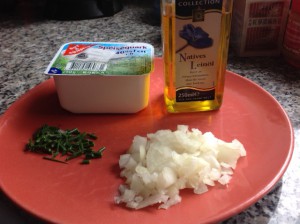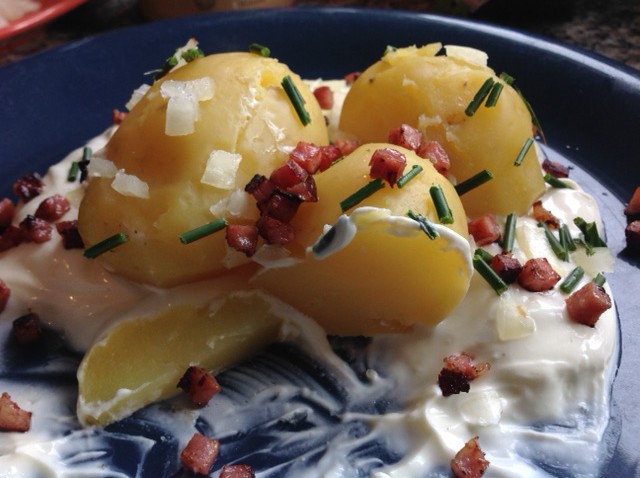Another curiosity among my international friends is what to do with ‘Quark’ from the supermarket in Germany. The dairy section also offers Schmand, Crème fraîche, Quark, Frischkäse, etc., but today we focus on Quark.
Besides making ‘Käsekuchen’ (cheese cake) with it, there are many more savory ways to enjoy it. This one seemed the easiest to make:
Potatoes with Quark and linseed oil

Ingredients:
250gr low fat soft cheese (Quark)
some onion grass
chopped onion
1 Tbsp linseed oil (German: Leinöl)
3 Tbsp milk
salt + pepper to taste
The Quark itself is a bit jello-like, so adding three Tbsp milk will give it a creamier consistency.


I’ve got my own onion grass growing on the balcony
While contemplating its taste, I also remembered the American baked potato topped with bacon bits. Yes, I had ‘Schinkenwürfel’ (similar to bacon bits once fried) at home, and added this halfway through my meal. Oh, it was good.

Schinken means ham, but this is more of a ‘roher Schinken’ (crude), so once fried, it does resemble bacon bits.

Potatoes with Quark
This combination of potatoes, Quark and linseed oil is high in protein and omega-3 fatty acid.
It is also quick to make and these day-to-day ingredients are low in price.
There is Quark with 20% fat and 40%fat. For this dish, the 20% fat Quark is good enough, because the extra ingredients, especially the linseed oil, add more taste.





